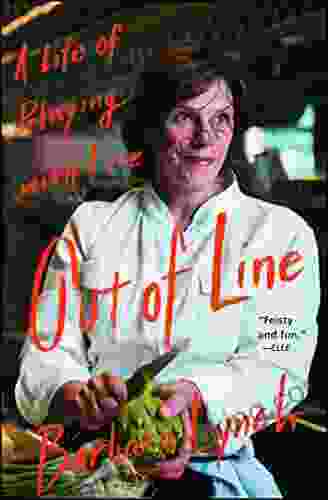Unveiling the Enigmatic Enigma: Hitler's Reliance on Coercion in Nazi Germany

Adolf Hitler's ascent to power in Germany marked a pivotal moment in world history. His dictatorial regime, characterized by its oppressive nature and ruthless control, cast a dark shadow over Europe. Understanding the extent to which Hitler relied on coercion to maintain his grip on power is crucial for unraveling the intricacies of Nazi Germany. This comprehensive article delves into the multifaceted methods of coercion employed by Hitler, shedding light on the strategies he used to suppress dissent and consolidate his authority.
The Legal Framework of Terror
Hitler's regime established a legal framework that institutionalized terror as a means of control. The Reichstag Fire Decree, enacted shortly after the Nazi Party's rise to power, suspended fundamental liberties and allowed for the arbitrary detention of political opponents. The Gestapo, the Nazi secret police, played a central role in implementing this reign of terror, carrying out mass arrests, interrogations, and torture.
5 out of 5
| Language | : | English |
| File size | : | 28 KB |
| Text-to-Speech | : | Enabled |
| Screen Reader | : | Supported |
| Enhanced typesetting | : | Enabled |
| Word Wise | : | Enabled |
| Print length | : | 9 pages |
| Lending | : | Enabled |
The Enabling Act of 1933 further granted Hitler dictatorial powers, enabling him to enact laws without the consent of the German parliament. This act effectively eliminated the separation of powers, allowing Hitler to consolidate his control over the entire government.
Economic Coercion
Hitler also employed economic coercion to suppress resistance. The Nazi regime's economic policies were designed to reward loyalists and punish those who opposed the regime. Labor unions were dismantled, and workers were subjected to harsh working conditions and low wages. Trade unions and cooperative societies were replaced with Nazi-controlled organizations, further tightening the regime's economic grip on society.
Propaganda and Censorship
Hitler recognized the importance of controlling the flow of information. The Nazi regime established a sophisticated propaganda apparatus that permeated every aspect of German society. The Ministry of Propaganda, headed by Joseph Goebbels, disseminated favorable news about the regime while suppressing dissenting voices. Censorship was pervasive, with newspapers, books, and radio broadcasts strictly controlled to ensure conformity.
Political Coercion
Hitler's political strategy involved eliminating or neutralizing political opponents. The Nazi Party established a network of paramilitary organizations, including the SS and SA, to intimidate and suppress dissenters. Political parties were banned, and any form of organized resistance was met with swift and brutal retaliation.
The Nazi regime utilized concentration camps as a means of political coercion. Political prisoners, including communists, socialists, and social democrats, were subjected to unimaginable horrors. The camps served as both a deterrent to dissent and a tool for breaking the will of those who dared to challenge the regime.
Consequences of Nazi Coercion
The pervasive use of coercion in Nazi Germany had far-reaching consequences. The systematic suppression of dissent created a climate of fear and intimidation, silencing any opposition to Hitler's rule. The erosion of civil liberties and the institutionalization of terror paved the way for the horrors of the Holocaust.
Moreover, the economic coercion employed by the regime led to widespread poverty and hardship, further undermining public morale. The propaganda machine's relentless campaign of indoctrination distorted the truth and created a false sense of reality, contributing to the German people's complicity in the regime's crimes.
Hitler's reliance on coercion was a defining characteristic of Nazi Germany. Through a combination of legal, economic, political, and propaganda measures, he established a totalitarian regime that crushed all forms of opposition. This systematic suppression of dissent ultimately enabled Hitler to consolidate his power, leading to the outbreak of World War II and the horrors of the Holocaust. Understanding the extent of Hitler's reliance on coercion serves as a stark reminder of the dangers of authoritarianism and the importance of upholding democratic values.
5 out of 5
| Language | : | English |
| File size | : | 28 KB |
| Text-to-Speech | : | Enabled |
| Screen Reader | : | Supported |
| Enhanced typesetting | : | Enabled |
| Word Wise | : | Enabled |
| Print length | : | 9 pages |
| Lending | : | Enabled |
Do you want to contribute by writing guest posts on this blog?
Please contact us and send us a resume of previous articles that you have written.
 Book
Book Novel
Novel Page
Page Chapter
Chapter Text
Text Story
Story Genre
Genre Reader
Reader Library
Library Paperback
Paperback E-book
E-book Magazine
Magazine Newspaper
Newspaper Paragraph
Paragraph Sentence
Sentence Bookmark
Bookmark Shelf
Shelf Glossary
Glossary Bibliography
Bibliography Foreword
Foreword Preface
Preface Synopsis
Synopsis Annotation
Annotation Footnote
Footnote Manuscript
Manuscript Scroll
Scroll Codex
Codex Tome
Tome Bestseller
Bestseller Classics
Classics Library card
Library card Narrative
Narrative Biography
Biography Autobiography
Autobiography Memoir
Memoir Reference
Reference Encyclopedia
Encyclopedia Anthony Koontz
Anthony Koontz Armand Lauffer
Armand Lauffer Athena Z Phillips
Athena Z Phillips Anthony Arvanitakis
Anthony Arvanitakis Ashley Audrain
Ashley Audrain Antony Kamm
Antony Kamm Ascencia
Ascencia Barbara Illowsk
Barbara Illowsk Barbara Allan
Barbara Allan Anne De Courcy
Anne De Courcy Archie Brain
Archie Brain Anum Hussain
Anum Hussain Amber Lia
Amber Lia Annemarie Brear
Annemarie Brear Athol Fugard
Athol Fugard Anne Marie O Connor
Anne Marie O Connor Arthur J Gonzalez
Arthur J Gonzalez Barbara A Parish
Barbara A Parish Annette Parkhurst
Annette Parkhurst Anne Janzer
Anne Janzer
Light bulbAdvertise smarter! Our strategic ad space ensures maximum exposure. Reserve your spot today!

 Christian BarnesUnleash Your Inner Photographer: The Ultimate Photography for Beginners Box...
Christian BarnesUnleash Your Inner Photographer: The Ultimate Photography for Beginners Box...
 Dustin RichardsonLeaphorn Chee Manuelito Novel Leaphorn And Chee Novel 22: A Thrilling Journey...
Dustin RichardsonLeaphorn Chee Manuelito Novel Leaphorn And Chee Novel 22: A Thrilling Journey...
 Bobby HowardOrganic Chemistry For Dummies For Dummies Lifestyle: Your Ultimate Guide to...
Bobby HowardOrganic Chemistry For Dummies For Dummies Lifestyle: Your Ultimate Guide to... Max TurnerFollow ·16.9k
Max TurnerFollow ·16.9k Jacob FosterFollow ·13.5k
Jacob FosterFollow ·13.5k Samuel BeckettFollow ·7.5k
Samuel BeckettFollow ·7.5k Jason ReedFollow ·6.6k
Jason ReedFollow ·6.6k Owen SimmonsFollow ·11k
Owen SimmonsFollow ·11k Avery SimmonsFollow ·16.9k
Avery SimmonsFollow ·16.9k Vince HayesFollow ·13k
Vince HayesFollow ·13k Brady MitchellFollow ·4.6k
Brady MitchellFollow ·4.6k

 Brayden Reed
Brayden ReedTeach Your Child They Have No Self Worth And They Will...
By Dr. Jane Doe ...

 Shawn Reed
Shawn ReedUnveiling Centuries of Tradition: History of Childbirth...
Journey into the heart of the...

 Brady Mitchell
Brady MitchellProven Guidelines For Healthy Multiple Pregnancy
Congratulations on your...

 Dylan Mitchell
Dylan MitchellHarness the Power of Sleep for Optimal Health and...
In the fast-paced,...

 Herman Melville
Herman MelvilleAlexander Hamilton: The Revolutionary Who Shaped...
Alexander Hamilton was a...
5 out of 5
| Language | : | English |
| File size | : | 28 KB |
| Text-to-Speech | : | Enabled |
| Screen Reader | : | Supported |
| Enhanced typesetting | : | Enabled |
| Word Wise | : | Enabled |
| Print length | : | 9 pages |
| Lending | : | Enabled |








